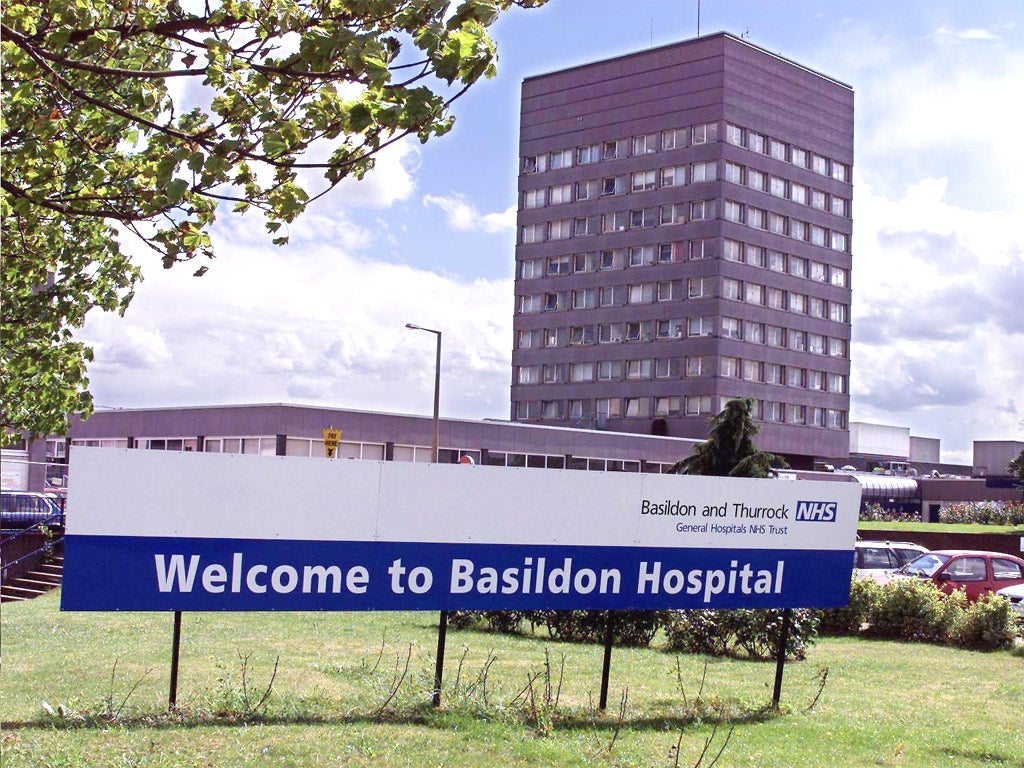'High risk' care flagged up at 1 in 4 NHS Trusts
CQC regulator found 44 with the most serious level of concern, including higher than expected death rates

One in four hospital trusts in England are at heightened risk of providing poor care, a comprehensive review by the health service regulator has found.
The Care Quality Commission has placed each trust into six bands, ranked according to performance in 150 key areas.
Forty-four out of 161 trusts have been placed in the two highest risk bands. These trusts will now be prioritised for early inspection. The watchdog intends to inspect every hospital in England by 2015, as part of a total overhaul of the regulation system, which was condemned earlier this year as “not fit for purpose”.
The bandings are based on previously existing NHS data and are not the CQC’s final judgement on hospitals. However, they do represent red flags for which hospitals may be performing poorly.
Sir Mike Richards, the new chief inspector of hospitals who is spearheading the new regulatory regime, compared the process to “screening”, ahead of inspections that will provide “diagnosis”.
“Our intelligent monitoring helps to give us a good picture of risk within trusts, showing us where we need to focus our inspections,” he said. “We aim to publish the results at regular intervals. They will provide the basis for constant contact with NHS hospitals and other NHS organisations, and may lead to inspections in response to particular issues.”
Trusts in the highest risk band include the 11 trusts already placed into special measures following the NHS medical director Sir Bruce Keogh’s review of hospitals with higher-than-normal death rates.
Among the other 24 trusts in band one is Barking, Havering and Redbridge, which recorded risk in 13 areas, including A&E waiting times while also scoring poorly in patient response surveys.
South London Healthcare Trust is also in band one, with 17 risks identified, including poor response to whistleblowing alerts and a high proportion of safety incidents that proved harmful to the patient.
The 150 criteria trusts are rated on are grouped into in five key areas: safety, caring, effectiveness, responsiveness and leadership.
Dr Mark Porter, chair of British Medical Association Council said that the negative findings should be seen in the context of the “extreme financial pressure” the NHS was under. The Government has reduced NHS spending dramatically. In the last budget, health spending was set to rise by just 0.1 per cent in 2015-16, despite ever-growing demand on NHS services.
“The NHS is having to make £20bn of savings, leading to increasing pressure on staff and resources and, most worryingly, affecting patient care and outcomes,” Dr Porter said.
"Many hospitals are stretched to breaking point. If we are to deliver the improvements patients and doctors want to see, the Government needs to address the significant funding gap in the NHS.”
Among the 37 trusts in the best-performing band were the Royal Liverpool and Broadgreen, Sheffield Teaching Hospitals, and South Devon Healthcare Trust.
Matt Tee, the chief operating officer of the NHS Confederation, which represents all health service organisations, welcomed the new inspection criteria.
"The CQC has taken into account more than 150 indicators to develop a robust process for identifying which organisations should be prioritised for external inspection,” he said. “It's still good to see that they are keen to refine this ‘Intelligent Monitoring' tool in the light of first experiences and feedback - it's a culture that bodes well for a collaborative approach to inspection and improvement.”
Labour’s shadow health secretary Andy Burnham said the NHS was facing a “very, very dangerous winter” and called on the Government to come forward with a plan to make hospitals safe.
The health secretary Jeremy Hunt praised the CQC for being “tough and transparent” and repeated accusations that Labour had not been open about poor care, “sometimes with tragic consequences for patients”.
Join our commenting forum
Join thought-provoking conversations, follow other Independent readers and see their replies
Comments